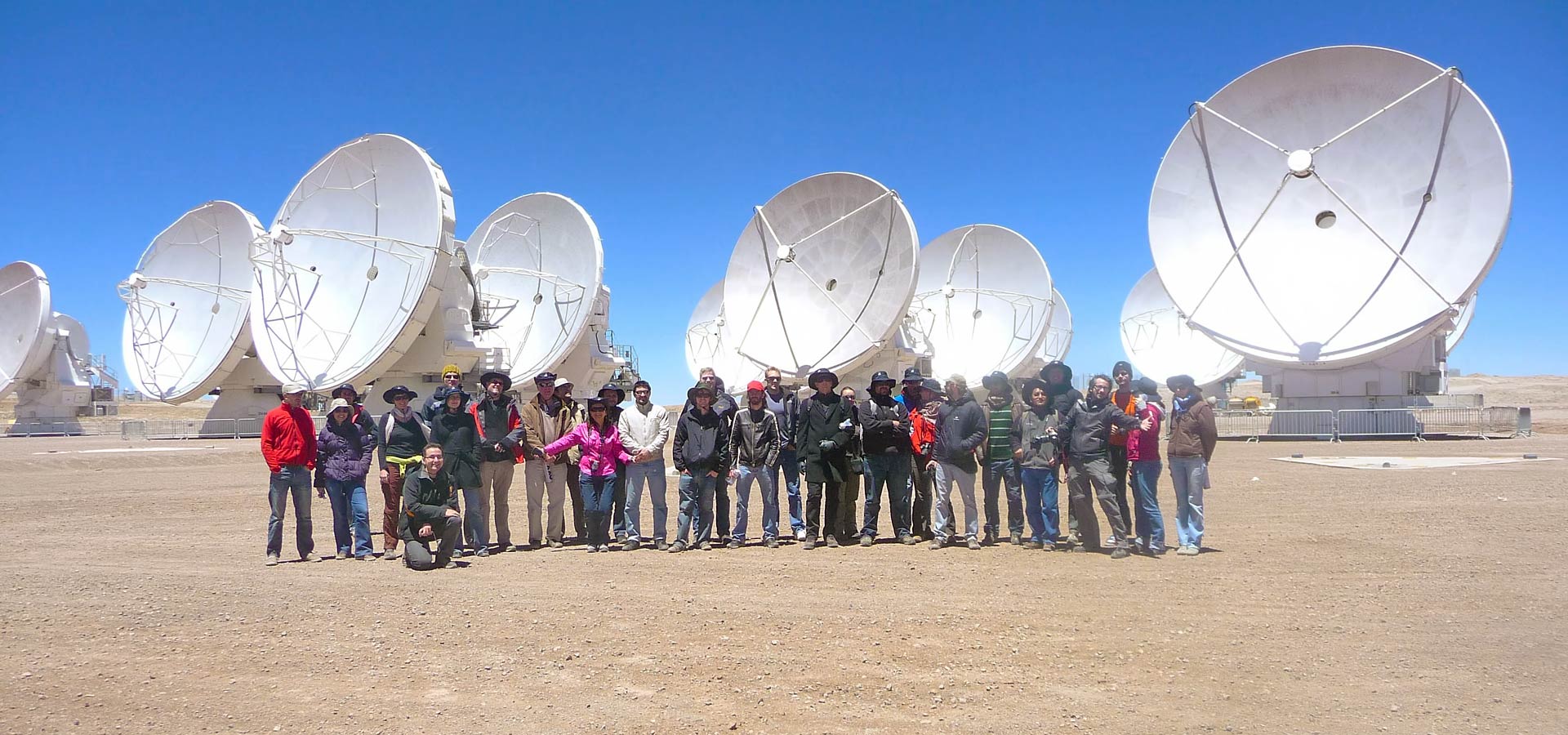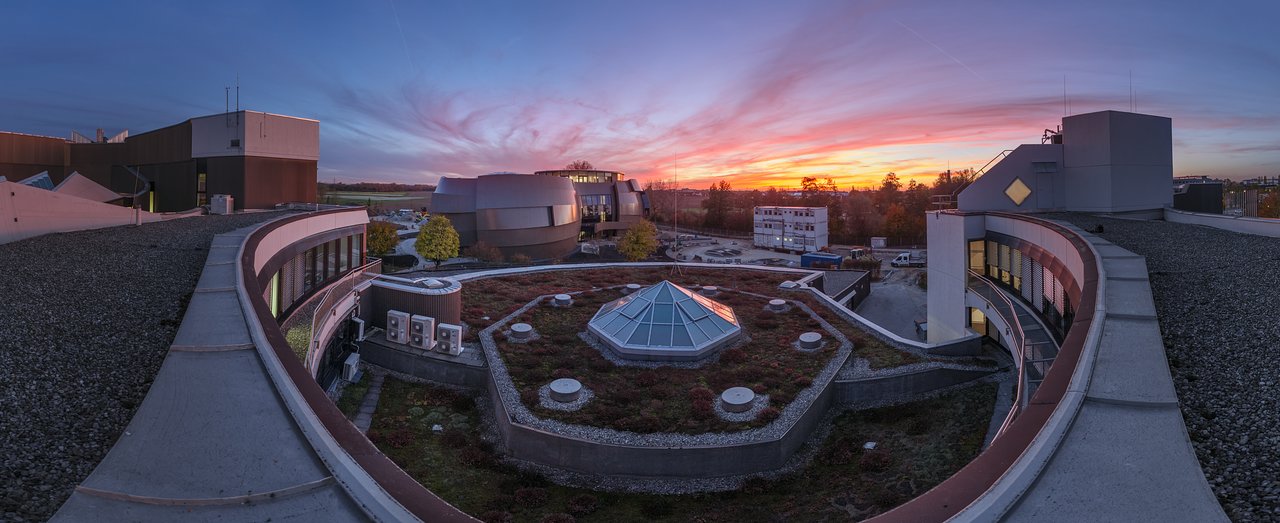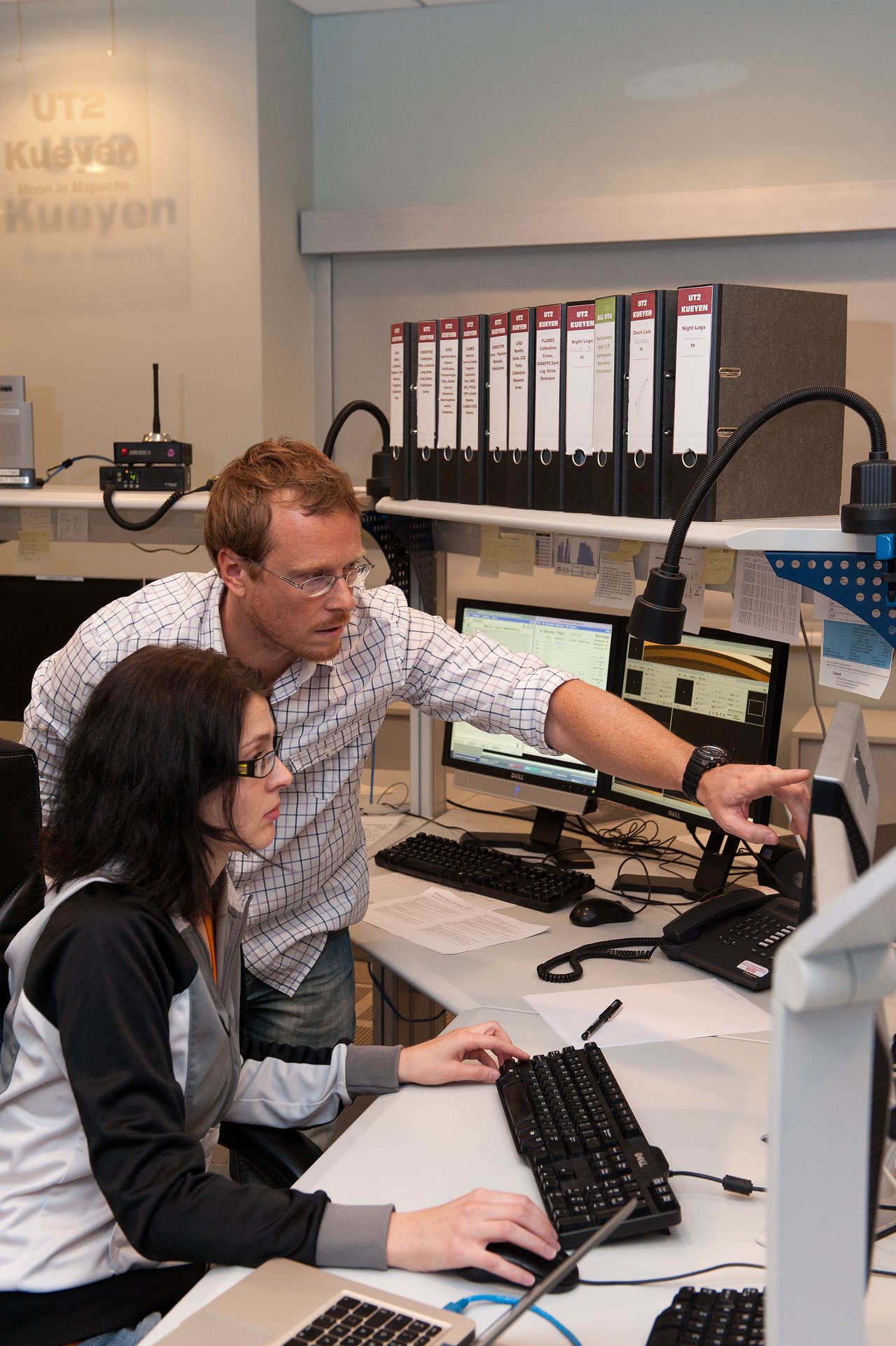- What an ESO Fellowship is
- Some examples of current ESO Fellowship projects
- That former ESO Fellows have become world-wide astronomy leaders
- How to apply for an ESO Fellowship
Here at ESO we are approaching an exciting deadline: that of our Fellowship programme. As the foremost astronomical organisation, we believe it is imperative to support early-career astronomers in developing their research. Building and operating the world’s most powerful ground-based astronomical telescopes such as the Very Large Telescope (VLT) and the forthcoming Extremely Large Telescope (ELT) as well as being a partner in the Atacama Large Millimeter/submillimeter Array (ALMA) means that ESO can offer unique opportunities for early career researchers to not only delve into their own research, but also to explore other aspects of observational astronomy.
Along with the studentships, internships and training programmes, an ESO Fellowship provides varied and complex development and support, sustained by a diverse set of people. This in-house programme focuses on nurturing young astronomers as they progress from their studies into academia and further research, which we believe is vital for the future of astronomy.
As the world’s most productive observatory and as a community of globally-minded, supportive astronomers, engineers and administrators, ESO is a very special place to work in astronomy.
RESEARCH AND SKILLS FOR THE NEXT GENERATION OF LEADERS
Each year ESO supports a number of programmes for budding researchers and engineers, including Girl’s Day, the summer and winter astronomy camps, and the Studentships for PhD students. The ESO Fellowship for postdoctoral astronomers is unique among them. These Fellowships take early career astronomers to Germany or Chile for invaluable training opportunities, allowing them to use ESO’s Headquarters and observatories in a multi-faceted way for up to four years.
ESO fellows develop their work in an environment presided by essential values as reflected in ESO's People Policy. ESO's code of conduct defines integrity, respect, fostering diversity and promoting collaboration among our core values. Intimidation, harassment and other deviations from such core values are actively fought against at ESO, and affected individuals can expect support, in particular from our Harassment Contact Persons and vey soon by a dedicated ESO Ombuds. Protecting personal and collective core values is a key ingredient to secure professional development at ESO, especially for early career scientists.
The work that our Fellows do is unique and very challenging. Our programme combines research activities with functional duties, allowing Fellows to push themselves as astronomers in many different ways. Functional duties, which constitute up to 25% of working time in Garching and up to 50% in Chile, allow Fellows to further enhance their skills by gaining experience in areas complementary to pure research, for example data processing, outreach and on-site science operations and instrumentation. This combination of research and functional duties is something that we feel is necessary for well-rounded astronomers and has been a positive thing for fellows past and present.
As our Fellows grow through the programme, they cultivate their research programmes, develop new skills, and facilitate contact between themselves and ESO staff in their pursuit of further research. We aim to make sure that each fellow gets the most out of the Fellowship by shaping the programme for each individual and letting them take the lead in what they want to achieve with the support of ESO.
Many previous ESO Fellows have now gone on to become senior astronomers and a few are now even leaders of astronomical institutions around the world. For some examples of what our fellows get up to after they leave ESO please take a look at the following brochure.
RESEARCH BY ESO FELLOWS
ESO Fellows take on ambitious research projects that cover a wide range of astronomical topics. Just a few examples of these include:
- Detecting and characterising extrasolar planets
- Understanding the formation and evolution of galaxies
- Exploring stellar evolution, planetary nebula and supernovae
- Studying the stellar content of nearby star clusters and galaxies
- Investigating dark matter and dark energy within the Universe
For more information about ESO's astronomical research activities please see our Science Activities page. The list of current ESO staff and fellows also contains information on their research interests. There are also lists of all former and current ESO Fellows in Garching and in Chile.
The coming year is a particularly exciting one for us, as one of the Fellowship openings will be for an ESO-ESA Fellow who will work on projects of mutual interest to both ESO and the European Space Agency (ESA).
CAREER DEVELOPMENT FOR ESO FELLOWS
During the Fellowships, Fellows can expect to work in a highly supportive and motivating world-class environment. From the beginning, Fellows receive support integrating into the organisation and they experience mentoring from other ESO scientists throughout their time with us. Our mentors support not only a Fellow’s research, but also the development of their technical and career skills. Both Heads of the Offices for Science in Garching and Chile are proud to maintain “open door” policies for all our Fellows.
To support the future careers of our Fellows, we offer training sessions on topics such as communication and presentation skills, project management, basic people-management and writing skills. We offer specific training and advice on interview technique and crafting effective job applications, and Fellows can even participate in — or perhaps lead! — teams working on different projects. They often serve as mentors for ESO PhD students, and sometimes work on projects supported by ESO grants for which Fellows are eligible to apply as principle investigators. This is enormously helpful to maintain a lively science environment at ESO, but it also gives both Students and Fellows an advantage in an increasingly competitive job market.
Observing and science trips are encouraged, giving Fellows the opportunity to obtain new data to advance their research, disseminate their results, network with other astronomers around the world and serve as an ambassador for the organisation — which is a win-win for both the Fellows and for ESO. ESO typically covers the cost of these trips.
Besides offering a fantastic working environment and a competitive salary, ESO has put in place a comprehensive set of measures to move the organisation towards a family-friendly workplace. Reduced core hours, mobile working, parental leave and support for young children are some of the benefits that we offer.
HOW TO APPLY
Every year the deadline to apply for an ESO Fellowship is at midnight on 15 October. To apply online, please visit the ESO recruitment portal. We welcome applicants from any country, not only ESO Member States, so long as your academic background matches that required for the Fellowship.
Applicants must have completed all requirements for their PhD before starting their ESO contract, i.e. the thesis must have been submitted and accepted, and all other requirements met. Any administrative procedure pertaining to the PhD, or, in exceptional cases, the defence itself, should be completed in the first six months of the Fellowship contract.
I really believe this is a great opportunity for those of you who are enthusiastic about continuing your research career after your PhD and I would encourage anyone considering it to apply. If you have any questions about the Fellowship I would suggest emailing one of our representatives in charge of the programme to gain more insight and for advice with your application.
Finally, I would like to wish anyone who does apply the very best of luck and hopefully some of you reading this will join us here at ESO in the near future!
Numbers in this article
| 3–4 | Typical length of an ESO Fellowship |
| 15 | The day in October that marks the deadline for applying for an ESO Fellowship |
| 25 | Maximum percentage of time spent on functional duties in Garching |
| 80 | Nights per year of science operations in Chile (for fellows in Chile) |
Links
Biography Xavier Barcons
Xavier Barcons became the eighth Director General of the European Southern Observatory on 1 September 2017. He was born in Spain in 1959, where he graduated with a PhD in physics in 1985 from the University of Cantabria. Prof. Barcons is a specialist in X-ray astronomy, and in his research career he has (co-)authored more than 250 refereed papers in journals and conference proceedings. He served as an ESO Council member for eight years, including as President (2012–2014), dedicating significant efforts to ALMA and ELT.






